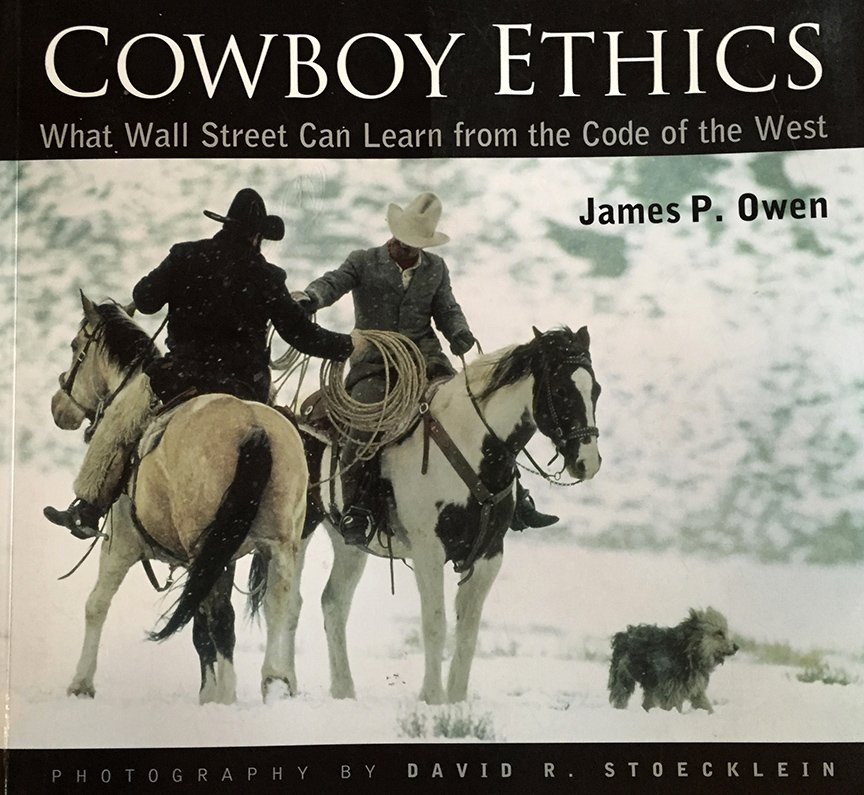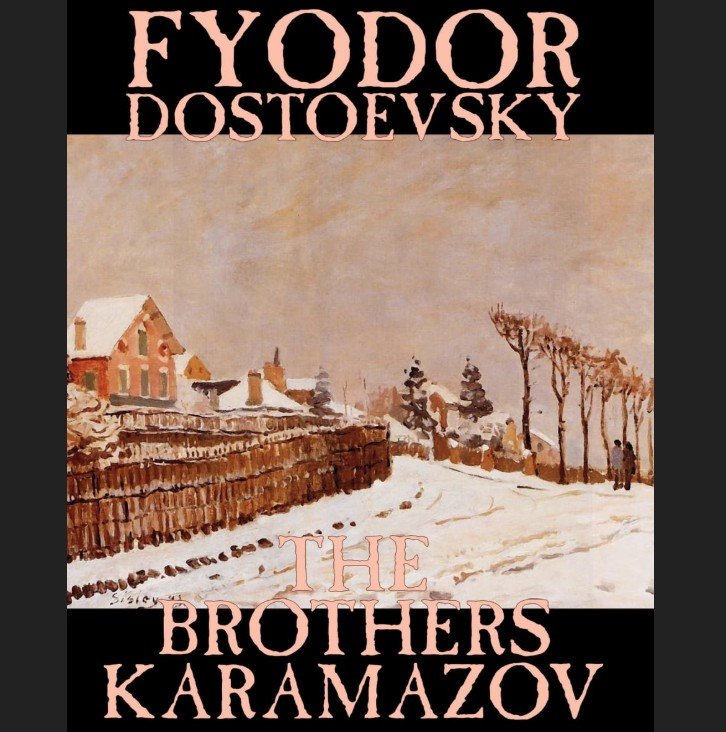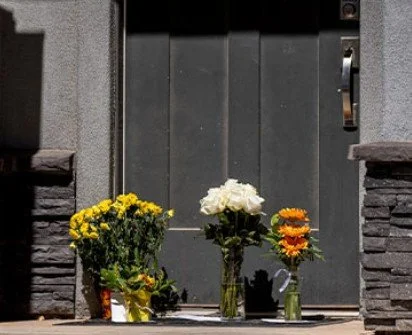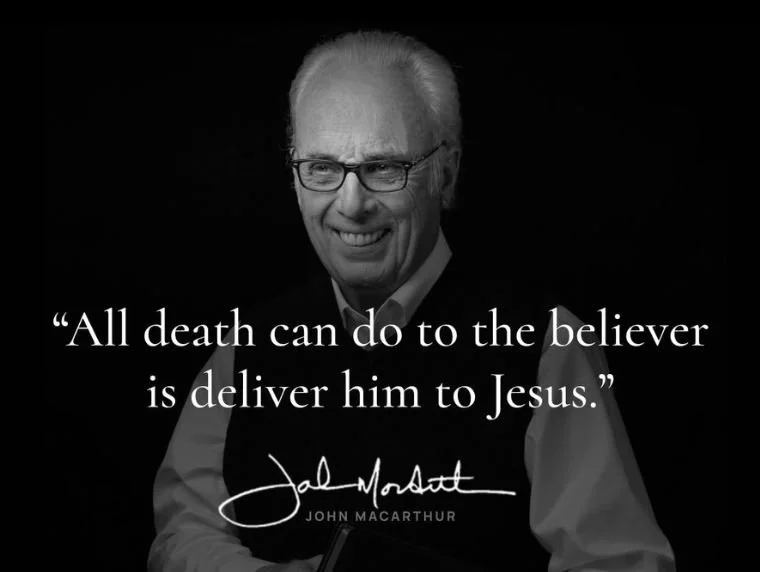
The Cowboy Code
Ten years ago I attended a client’s family retreat at Covered Wagon Ranch, a dude ranch in Montana. While there I discovered in the rustic dining lodge a book titled “Cowboy Ethics: What Wall Street Can Learn from the Code of the West”. The book was written by James Owens, a 35 year Wall Street veteran, who believes that modern America has exchanged its moral principles for blind materialism, and that by returning to shared American values, we can find personal and national success again . . .

Dying Reflections of an Old Saint
Fifty years ago while in college I read Fyodor Dostoyevsky’s “The Brothers Karamazov”, his last novel published in 1880. The book, acclaimed as one of the greatest achievements in world literature, is a philosophical drama that explores deep questions about faith, morality, and free will through the story of the Karamazov family. My favorite character in the novel is Father Zosima, a beloved saintly elder and spiritual advisor in the town monastery who is the mentor to the youngest son, the monk Alyosha Karamazov . . .

The Visited Planet
Today as we embark on a New Year, just a week after celebrating Christmas, I believe it’s beneficial to once again ponder the significance of the birth of Jesus over 2,000 years ago. Sadly the Christmas season has become so commercialized that it’s easy to be distracted and fail to be moved with awe and wonder at the birth we claim to celebrate. This was the certainly the case with Charlie Brown who, depressed by the commercialization of Christmas, cries out, “Isn’t there anyone who knows what Christmas is all about?” . . .

Beautiful Dreamer
This touching short story of the healing power of kindness is another one from Arthur Gordon’s soulful book, A Touch of Wonder, published in 1985. As I indicated in a previous post, I discovered this book on my mother’s bookshelf about 40 years ago and have purchased and given away several copies of this book, the most recent to my oldest granddaughter on her 13th birthday. Most of the stories in this book are personal events from Gordon’s life that had a transforming impact on him. Whenever I return to this book I am reminded that all of us have meaningful stories from our lives that have shaped who we are today . . .

His Name Shall Be Called Wonderful
The incredible book of Isaiah records the life and prophecies of Isaiah, whose prophetic ministry spanned over 50 years from about 740 to 686 B.C. When Jesus announced His ministry (Luke 4) he went to the synagogue in Nazareth and read from the scroll of the prophet Isaiah, “The Spirit of the Lord is on me, because he has anointed me to proclaim good news to the poor. He has sent me to proclaim freedom for the prisoners and recovery of sight for the blind, to set the oppressed free, to proclaim the year of the Lord’s favor.” After rolling up the scroll he sat down and declared, “Today this scripture is fulfilled in your hearing.” . . .

Joy To The World
I remember clearly about 53 years ago when the words of this amazing Christmas carol left me in awe. I was with my close friend, Jerry, and we were driving through town in a 1964 VW Bug on a chilly evening in December. The windows were down, the radio turned up, and as the fresh air swept through the car, this song began playing and we enthusiastically sang along. This moment led to a most memorable Christmas as it was the first one where I began to hear clearly in my favorite carols the “good news of great joy that shall be for all people.” . . .

Thanks Giving
As we approach Thanksgiving, I was reminded of an excerpt from a beautiful poem we included in my mother’s obituary over 5 years ago. The poem is titled “Thanks Giving”, written in 1926 by J. W. Wright (1871-1950), a little known poet and author, who after retiring as a newspaperman moved to Carmel-by-the-Sea and lived there for about 10 years. While in Carmel he set up a small printing press, known as the “Press in the Forest”, and became part of its Bohemian and artistic community. Wright’s private press produced a number of modest books in which he set the type by hand, printed, and hand-bound the books by himself, often in limited editions all made with great care . . .

Be Still My Soul
On Monday, November 3rd, around 3 a.m., my father peacefully passed from this earth. As a man of faith, he believed in the biblical promise of eternal life in God’s kingdom. For the past 15 months Dad was mostly relegated to his bed or recliner due to his declining health and as my sister and I lived only 10 minutes from his assisted living facility, we were able to be his daily companions through his remaining life journey.
You might think being being mostly confined to a small apartment would be depressing, but we had purchased for Dad a 65” smart TV and with YouTube we explored with awe the wonders of God’s creation . . .

Over the Rainbow
I first encountered the music of Eva Cassidy a decade ago, a young woman gifted with a mesmerizing voice that resonates with the yearnings of the human soul. Recently I rediscovered Eva with my father watching videos of her singing on YouTube. We were particularly moved by her captivating rendition of “Over the Rainbow”, a song that speaks to all people who long to escape the troubles of this world and who hope for a brighter future. This post includes the live performance of her song, Scripture that gives meaning to the song’s hopeful words, a 2001 Nightline profile titled “The Musical Story of Eva Cassidy”, and a personal article by Dave McKenna titled “The Never-Ending Resurrection of Eva Cassidy”.

The Pain of a Parent
In a world where we frequently encounter negativity and hostility, God’s Word encourages us to respond to evil with good. This is a challenging but rewarding principle that empowers us to rise above the hurt and seek Christ’s teaching and example on how we should live. As we embrace biblical wisdom, we learn that treating others with kindness, even those who may wish us harm, transforms not only our lives but often theirs as well. This post contains an affecting commentary titled “The Pain of a Parent” written by Suzanne Bowdey, six days after Charlie Kirk was killed . . .

Rave On Charlie Kirk
Over the last 24 hours I’ve been both saddened and inspired thinking about the life and sudden death of Charlie Kirk. He was a Christ follower of extraordinary courage and conviction who was willing to engage anyone in respectful dialogue about their beliefs. Late this morning it struck me that the moving song by Van Morrison titled, Rave On John Donne, not only fittingly applies to Charlie but to thousands of other souls whose passionate words have inspired humanity throughout the ages . . .

The Power of Forgiveness
What does forgiveness entail? Why is it necessary? Why is it so difficult to forgive others and forgive ourselves? What does the Bible say about our responsibility when we have wronged someone or have been wronged? Does forgiveness always lead to reconciliation with God and with others? Does forgiveness eliminate the consequences of poor choices we have made? . . .

A Story and A Song
Recently my father and I were moved by a YouTube video of the story behind the timeless hymn, "Turn Your Eyes upon Jesus", written by Helen Lemmel (1863-1961) in 1918. Helen’s inspiration came from a short leaflet a friend gave her titled “Focussed: A Story and A Song” written by Lilias Trotter (1853-1928), a gifted artist, who chose to serve the Lord as an Algerian missionary rather than pursue a lucrative art career. Lilias created this leaflet based on a diary entry she made in 1901, when early one morning, while alone in the woods, she was captivated by a single dandelion illuminated by the sun . . .

Between Faith and Doubt
Perhaps the most complete definition of faith in Scripture is stated in Hebrews 11:1; “Now faith is the assurance of things hoped for, the conviction of things not seen.” This definition of faith contains two aspects: intellectual assent and trust. Intellectual assent is believing something to be true. Trust is actually relying on the fact that the something is true . . .

The Gospel in One Minute
Many of you may have heard that expository preacher, John MacArthur, died this week at age 86. During his 5 decade career he taught Scripture to millions through taped sermons, radio broadcasts, Bible Commentaries, and a best selling study Bible . . .

Is Everything Going To Be Alright?
We live in times of ever-increasing instability and uncertainty and we often wonder if everything is going to be alright. Certainly how this question is answered will depend on one’s worldview . . .

Time In The Garden With God
In early spring this year my wife and grandson (age 4 1/2) planted a variety of seeds that were saved from last year’s harvest. Nearly 4 months later we are now enjoying an abundance of tomatoes, green beans, zucchini, yellow squash, and cucumbers. Early each morning my wife peruses our vegetable garden and gathers what has matured since the prior morning . . .

The News That Changes Everything
A few weeks ago I posted a message titled “What is the Gospel” which was intended to help clarify for both believers and skeptics what the good news about Jesus Christ is all about. For me, the gospel is the best news I’ve encountered in my life and, as this post title indicates, I believe this news has the power to change everything . . .

The Mystery of Hesed
The mysterious 3 letter Hebrew word shown above is pronounced as hesed (or khesed) and is found about 250 times in the Old Testament. It expresses an exceedingly wonderful aspect of God’s character. In his book, The Mystery of Hesed, Michael Card writes, “A good case can be made for the claim that this word, hesed, has the largest range of meaning of any word in the Hebrew language, and perhaps in any language.” . . .

To Everything There Is A Season
Last weekend my father and I watched an emotional movie titled “Taking Chance”, the true story of Lt. Col. Michael Strobl, a voluntary military escort, who accompanies the body of 19 year old Marine Chance Phelps back to his hometown of Dubois, WY . . .